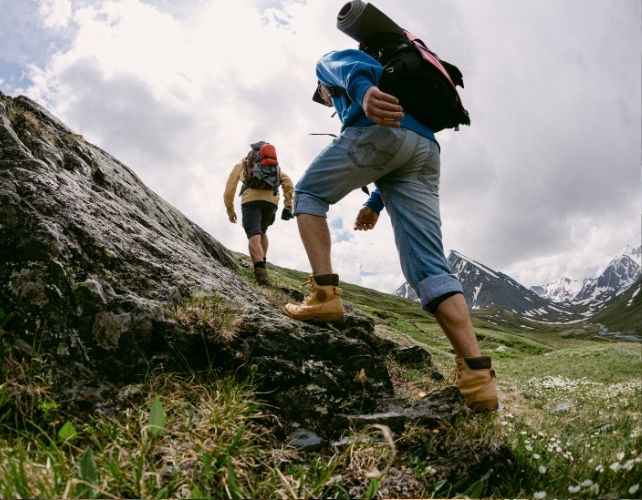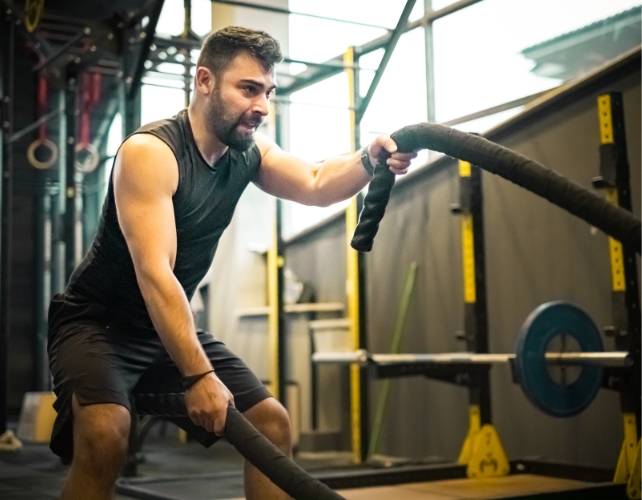Bad news for all you extreme exercise junkies: Excessive, vigorous exercise can dampen your immune system. At least that’s what a 2023 study that analyzed more than 4,700 fluid molecules after firefighters’ exercise suggests.
This can be problematic for workers in consistently physically demanding jobs that require intense fitness training, such as first responders and athletes.
“People who are very fit may be more susceptible to viral respiratory infections immediately after vigorous exercise,” says biomedical scientist Ernesto Nakayasu of the Pacific Northwest National Laboratory (PNNL). “Having less inflammatory activity to fight an infection may be one cause.”
Although there is strong evidence that moderate physical activity in healthy individuals can boost the immune system in the long term, what happens to the immune system immediately after vigorous exercise is controversial.
There is little reliable evidence to support the claim that intense exercise increases the risk of opportunistic infections, although a few previous studies have noted self-reported upper respiratory tract infections in athletes, compared with control groups, after strenuous activity. Whether these are correlations or causalities is unknown.
So Nakayasu and colleagues tested the blood plasma, urine and saliva of 11 firefighters before and after 45 minutes of intense training during which they dragged up to 20 kilograms of equipment over hilly terrain.

“We wanted to take a deep look at what’s happening in the body and see if we can detect danger from exhaustion at its earliest stages,” explains PNNL bioanalytical chemist Kristin Burnum-Johnson. “We may be able to reduce the risk of strenuous exercise for first responders, athletes and military personnel.”
There’s no doubt that exercise does wonders for our health, from improving mood to boosting our immune system. But like previous studies, the new study found possible signs of immune suppression in the trained firefighters.
Amid the expected physical changes that help our bodies maintain the increase in fluids, energy and oxygen that exercise requires, there was a decrease in the number of molecules involved in inflammation. This was accompanied by an increase in opiorphin, a dilator of peripheral blood vessels.
What these changes ultimately mean for the short-term function of the immune system is unclear, but the researchers do have some ideas.
“[Opiorphin] may increase blood flow to the muscles during the training regimen to improve oxygen and nutrient supply,” the team writes in their paper.
“We hypothesize that the decrease in inflammatory molecules we observed in saliva after exercise could represent an adaptive mechanism to improve gas exchange in response to higher cellular oxygen demands.”

There was also change in the participants’ oral microbiome. The scientists suspect that this was due to the increase in antimicrobial peptides found in the firefighters’ mouths after their intense activity, possibly to compensate for the suppression of the immune system, although this conclusion is disputed.
“However, this increase in antimicrobial peptides had no effect on inhibition E.coli growth,” Nakayasu and colleagues explain, “indicating a limited capacity of antimicrobial peptides in the oral cavity to protect against host infections.”
That said, other scientists argue that some of the changes observed may not be indicative of immune suppression, but of a “heightened state of immune surveillance and immune regulation.”
Although a within-subject comparison reduced the impact of their small sample size, firefighters experience unique exposure to pollutants during fires, which may also alter their immune responses.
Additionally, this study only considered healthy and active men, the researchers cautioned, so further research among a broader community is needed to confirm their findings.
However, compared to previous studies, “there is evidence supporting an association between physical demands and a higher incidence of respiratory infections,” Nakayasu and team conclude.
This research was published in Military Medical Research.
An earlier version of this article appeared in November 2023.
